Fondly called by friends as Gopu, with a long 'tilak' on his forehead to establish his Vadagalai Vaishnavite Brahmin origin of Tamil Nadu, Gopalaswami is literally burning midnight oil as he retires to study late in the night.
His wife Raji, who has to get him a flask of hot coffee at 11 pm without fail, says he behaves like a kindergarten student fully engrossed in his studies. She can't make head nor tail of the figures he keeps writing on paper, doing his calculations the hard traditional way instead of using a calculator.
A retired Gujarat cadre Indian Administrative Service officer, Gopalaswami decided to study astrology during his previous tenure as the Union home secretary when he felt something was lacking in him as a Brahmin without knowing the science of astrology.
He goes to a school near the Jawaharlal Nehru University complex three times a week and says he is not the only old man falling for the quest of astrology at his age.
There are a dozen students in his class and most of them are in his age group. The Chennai-based Astrology Society of India, an old institution approved by the Union Human Resources Development Ministry, conducts the examination for which he is to appear.
He has already cleared four papers in 2005 and is to appear for three more papers in July. The result will be out in August. Gopalaswami is confident of coming out with flying colours and becoming a qualified astrologer as he is quite at home with the application of mathematical calculations of planetary positions needed for forecasts.
Shy of even mentioning that he is a student of astrology, Gopalaswami may have to take leave at least for three days as he goes to the examination hall to sit and write the 3-hour question papers. When the teacher teaches forecast, Gopu starts analysing horoscopes of his friends, relatives and batchmates that he has collected for practice.
When asked by a classmate whether he would make a forecast for his two colleagues B B Tandon and Navin Chawla, Gopu smiled it away, pointing out that as per the planetary position of that moment, he was not supposed to answer the question.
"Each second of the minute and hour has the influence of astology," says Gopalaswami. He insists that it is a science and if the subject is given due respect, one can become a master of the science. He wants to pursue astrology as a hobby in his years of retirement that begin February 2009.
A devout Brahmin, Gopalaswami felt for his community or rather for Vedic chanting in which the Brahmins are failing. He was thrown into the backwaters as secretary, culture department, during the National Democratic Alliance regime.
He made the best of it to push for preservation of ancient Indian culture and heritage by promoting special schools exclusively for Brahmins to undertake a 5-year course under the traditional gurukul system of oral recitation.
It was his attempt to approach UNESCO for proclaiming the Vedic traditions as an "oral and intangible heritage of humanity" so as to ensure financial support from abroad in the promotion of Vedic culture that attracted the attention of then Deputy Prime Minister Lal Kishenchand Advani, who pulled him from the backwaters and made him his home secretary.
P Chidambaram, in his 2006 Budget, mentioned about grants for Vedic studies. These were all copied from N Gopalaswami's UNESCO funds. Only the financial advisor of Department of Culture knows how Chidambaram used the funds sought by Gopalaswamy, and brought it for schemes of the government of India.
Gopalaswami was concerned that the traditional Vedic way that had been preserved down the centuries as an unbroken tradition was getting corrupted and may eventually disappear as fewer and fewer people devoted their lives to teaching or learning the traditional way of chanting.
What crystalised under his leadership were 'Gurukul Pathshalas' aimed at preserving "the world's oldest wisdom of ancient Indian culture" that has been kept alive through religious rituals.
These schools, called 'pathshalas', will be part of a 5-year Action Plan of Rs 52.65 million envisaged to revitalise Vedic culture, which is probably the world's oldest living oral tradition kept alive through religious rituals. The government hails it as "the crystalised wisdom of ancient Indian culture".
Gopalaswami stresses that the effect of chants is lost if the recitation is not done correctly and hence, he hopes that the scholars coming out of the schools whose foundation he laid will be not only able to preserve and pursue the Vedic knowledge, but also form a battery of "pandits" who can recite the Vedas correctly to have the required effect in a host of Hindu rituals.

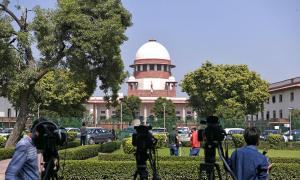
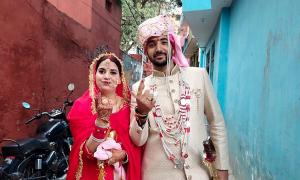
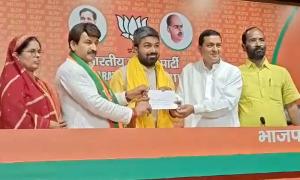
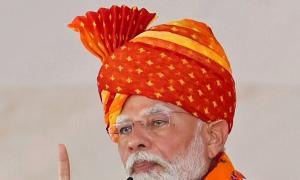
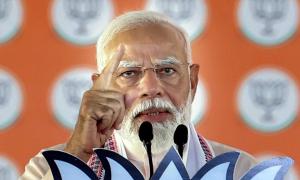
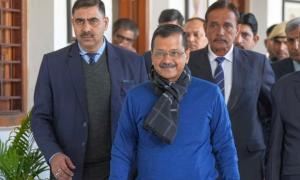
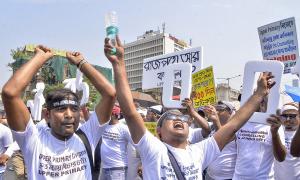
More from rediff